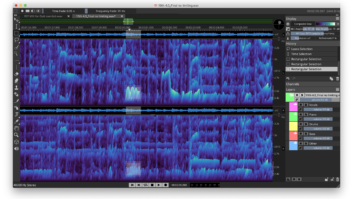The best class I had during graduate school in the mid-’80s was a composition seminar taught by American composer Pauline Oliveros. Known for her innovative use of sine-wave generators and tape delays two decades earlier, as well as her influential Deep Listening and sonic awareness aesthetics, I expected to spend several months exploring advanced and heady concepts. But to my surprise, the course’s direction proved to be more mundane and practical.
“You’re going to learn to write a grant.”
Right. Here we were in one of the country’s leading institutions supporting the experimental music tradition—graced by the likes of John Cage, Henry Cowell, Lou Harrison and Robert Ashley, among many others—and we were going to talk about money. Of course, we all knew that grants were the main means of financial support for the arts in the U.S., so it seemed like a reasonable topic to dig into. Each student was asked to propose a project and follow it all the way through, from design to realization.
Yet the real eye-opener was something very specific that Oliveros pointed out as we discussed the myriad things that should be included in every project budget.
“Figure out what your time is worth,” she said. “Then, include an amount in the budget that takes into account the number of hours you will invest in the project.”
Time stood still after I heard that. You mean I can pay myself for being an artist?
But then it hit me: I had no idea where to begin. Up to that point, I had been a member of the musician’s union in the Inland Empire, so I understood what scale was for a percussionist doing various “services,” and I knew what I was able to get per hour working odd jobs. But as a single person doing what he loves most—how do you put a price on that?
Three decades later—with a family, a mortgage in the Bay Area, and a kid in college—it’s much easier to figure out what my time is worth, even for my own projects. The challenge that remains, however, is the ability to convince others of that value. And this cuts to the core of the current crisis in the creative community, whether you’re a writer, musician, artist or engineer, because what we think we are worth might not match what the market is willing to pay.
So while the average consumer is happy to spend a few bucks on specialized coffee drinks, nearly everyone in the entertainment business is having to justify the reasonable amount they ask in remuneration for a project.
A recent example, though not an isolated one: A colleague of mine who records concerts was recently hired by a band to capture a gig using a stereo pair of mics placed a few feet from the stage. After setting up and doing the soundcheck, the leader of the opening act inquired if his band could also be recorded—for free—since the mics were already in place. The engineer politely said no, to which the band leader asked—you guessed it—if he could split the other band’s bill with them. But the engineer stuck to her guns and reminded the guy that she needs to earn an hourly wage for her work, just as he does, and she would be happy to record his group for the same amount she was charging the other band. At least he wasn’t able to use the old “do it for exposure” line.
FAIR TRADE
The difficulty today for studios and engineers is figuring out how to keep from pricing ourselves out of existence as project budgets decrease. Where I come from, the main tactic in negotiations is to shoot high, let them lowball you, and then haggle until a satisfactory price has been achieved. In the age of the Internet, however, that can be a dangerous strategy to employ: It’s easier than ever to find what you want at a lower cost using your Web browser. Consequently, the key to success, now, is to bring something to the table that simply cannot be found elsewhere, at any price.
This came up recently with a project I bid on: I did my due diligence and soon realized that I had a particular skill set and set of tools that was difficult to beat within my geographical location. So I made a proposal that seemed fair considering the amount of time the gig would take, though (as they made clear) a bit higher than they had expected.
What made this particular situation easier than usual was that I already had a full schedule and didn’t need the gig, which I made clear to the other party— a nice position to be in when negotiating. Remarkably, the offer was accepted immediately.
Of course, we’re not always in the catbird seat when job hunting, but the takeaway is to know what your time is really worth at the start, by analyzing your expenses, expectations and other personal needs. From there, you can negotiate based on how critical the job is for you at the time. Although you may not always get the gig you want, when you do, you’ll know how close you are to getting exactly what you need.






